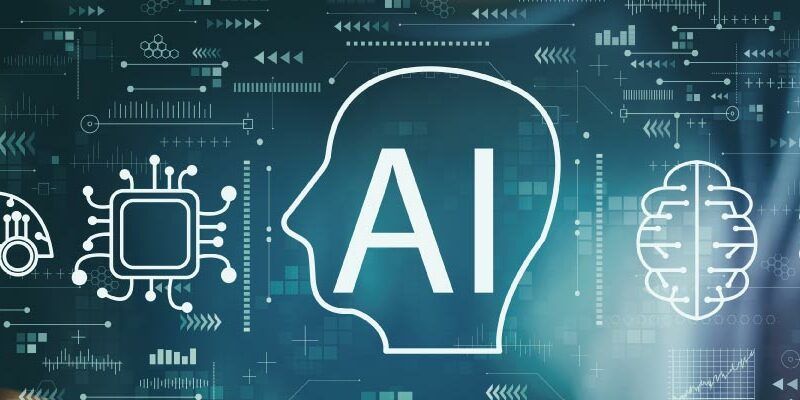Artificial Intelligence (AI) has become a central element in shaping how companies interact with their customers and manage operations. In customer care, AI tools such as chatbots, voice assistants, and predictive analytics help businesses respond faster and more effectively to consumer needs. In productivity, AI enhances workflow automation, data management, and decision-making, enabling teams to focus on higher-value tasks.
This topic exists because organizations worldwide are seeking ways to improve efficiency and customer satisfaction while managing costs. With AI, businesses can balance personalized service and operational performance in ways that were previously impossible.

Importance – Why AI in Business Matters Today
AI matters today because it solves pressing challenges in both customer service and organizational management.
-
For customers: AI provides faster, more accurate, and 24/7 support, reducing waiting times and improving satisfaction.
-
For businesses: AI automates routine processes, reduces human error, and provides data-driven insights that enhance productivity.
-
For employees: AI reduces repetitive work, allowing staff to focus on creative, strategic, or interpersonal tasks.
Industries most affected include retail, healthcare, banking, telecommunications, and e-commerce. For example, a customer service chatbot can handle thousands of inquiries daily, while AI-powered analytics can predict customer behavior and recommend tailored solutions.
Recent Updates – Trends in AI for 2024–2025
The past year has seen several key developments:
-
Generative AI for customer support (2024): Companies have started deploying advanced AI that not only answers queries but also creates tailored content for FAQs, emails, and knowledge bases.
-
Voice-based AI assistants: Adoption has expanded, particularly in call centers, where natural language processing (NLP) enables smoother human-like conversations.
-
AI integration with CRM tools (2024–2025): Popular platforms such as Salesforce, HubSpot, and Zendesk now embed AI-driven recommendation engines.
-
Hyper-personalization in marketing: Businesses use AI to analyze customer preferences in real-time, delivering highly relevant promotions.
-
Productivity enhancements: AI tools like Microsoft Copilot and Google Workspace AI (launched widely in 2024) streamline documentation, scheduling, and reporting.
These updates highlight that AI is no longer experimental but has become a practical, widely adopted tool.
Laws or Policies – Regulation and Ethical Use
AI in customer care and business operations is shaped by emerging laws and regulations across different regions:
-
Data protection: Regulations such as the EU’s General Data Protection Regulation (GDPR) and California’s Consumer Privacy Act (CCPA) ensure that customer data processed by AI tools is protected and transparent.
-
AI governance frameworks: In 2025, the European Union began enforcing parts of the AI Act, categorizing AI applications by risk and requiring stricter oversight for high-risk systems.
-
Industry-specific compliance: In banking, healthcare, and telecommunications, AI tools must comply with local laws around financial privacy, health data protection, and communication standards.
-
Ethical use guidelines: Governments and organizations are increasingly requiring AI to be explainable, fair, and non-discriminatory in decision-making processes.
Businesses adopting AI must stay updated on legal obligations to avoid penalties and maintain trust with customers.
Tools and Resources – Helpful Platforms for AI in Customer Care and Productivity
Several tools and platforms can help organizations implement AI effectively:
Customer Care AI Tools
-
Zendesk AI: Automates ticket routing, suggests replies, and provides real-time support insights.
-
Intercom Fin AI: Provides conversational support through generative AI-powered chatbots.
-
Ada: A no-code platform that allows businesses to build AI chatbots for customer interaction.
Business Productivity AI Tools
-
Microsoft Copilot: Embedded in Office apps to assist with writing, scheduling, and data analysis.
-
Google Workspace AI: Helps summarize emails, create documents, and manage meetings.
-
Notion AI: Generates text, organizes notes, and assists in brainstorming.
Additional Resources
-
Workflow automation tools like Zapier and UiPath integrate AI-driven automation.
-
Analytical tools such as Tableau with AI integration provide advanced data visualization.
-
Government websites and industry associations often publish compliance checklists for AI adoption.
| Category | Examples | Primary Use |
|---|---|---|
| Customer Care AI | Zendesk AI, Ada, Intercom | Automating support, chat, and routing |
| Productivity AI | Microsoft Copilot, Notion AI, Google Workspace AI | Automating tasks, reports, and documents |
| Automation & Data AI | UiPath, Zapier, Tableau | Process automation and analytics |
FAQs – Common Questions about AI in Customer Care and Productivity
Q1. Will AI replace human customer service agents?
Not entirely. AI handles repetitive queries and simple tasks, while human agents are still needed for complex, sensitive, or emotional interactions.
Q2. How secure is AI when handling customer data?
AI security depends on the platform and compliance with regulations. When implemented correctly, AI must follow strict data privacy standards like GDPR and CCPA.
Q3. Is AI affordable for small businesses?
Yes, many cloud-based AI tools, such as chatbots and productivity assistants, offer scalable pricing models suitable for startups and SMEs.
Q4. Can AI improve employee productivity beyond automation?
Yes. AI not only automates tasks but also provides insights, predicts outcomes, and reduces time spent on administrative work, boosting overall efficiency.
Q5. What industries benefit most from AI in customer care?
Retail, healthcare, e-commerce, financial services, and telecommunications see the most significant benefits due to high customer interaction and data management needs.
Conclusion – The Future of AI in Customer Care and Productivity
AI has become a critical enabler of efficiency, personalization, and growth in modern business. By combining automation with advanced analytics, AI improves customer experiences and supports employees in focusing on higher-value tasks.
While regulations will continue to shape how AI is deployed, businesses that adopt ethical, transparent, and customer-focused AI solutions will gain a competitive advantage. With new advancements in generative AI, voice technology, and productivity tools, the role of AI in customer care and business operations is expected to expand rapidly in the years ahead.